your brain on PornHub: the hidden costs of hardcore content
how digital porn warps our minds and fuels human trafficking
My first encounter with hardcore porn was in 2002 at the age of 12 in an elementary school classroom.
Under the harsh glare of the fluorescent lights, my friends and I typed a few terms into Yahoo! Image Search. Just like that, we tumbled down the rabbit hole. No firewalls in place, no filters, no age restrictions.
It was like watching a car crash. Sure, we knew what we were doing was 'bad,' but it was too late. We were transfixed. Together, we gazed at page upon page of what unfolded in front of us on the screen with a mix of confusion, horror, and rapt curiosity.
Looking back, I realize that was the beginning of the end, in a sense—a pivotal turning point in my psychological development. I often find myself wondering how my own sexuality would have unfolded if it hadn’t been arrested by the rise of unchecked technological 'advancement.'
From that moment on, my young psyche started soaking up the messages being digitally spoon-fed to me and my peers. The online world became my tutor and guide. Sexuality was positioned as a performance, something to be mastered to be desired—especially by older men. I learned that it was cool—even ideal—to like it 'a little rough.' Gradually, I was desensitized to increasingly extreme content, turning into the perfect, compliant little robot.
I continued to play the roles I’d been groomed to play throughout the entirety of my late adolescence and the majority of my 20s. These years were spent chasing validation through what felt like using sex as a form of self-harm through the performance of intimacy that I'd learned from consuming digital pornography with no guardrails.
Who might I have become—how might I have approached love and intimacy—without this psychological manipulation?
It's impossible to say. I’ll never know that girl. But one thing feels certain: she was robbed.
As soon as I started opening up about my experiences on my podcast and through Instagram, the floodgates opened. Voicemails, emails, and comments poured in from countless others in my generation, voicing a mix of righteous rage and relief at not being alone.
The majority were from women and gay men, who felt that their early exposure to online pornography and social media was the perfect setup for online grooming. They, too, had their innocence ripped away from them in a way that left them exposed and vulnerable, grappling with the emotional scars it left behind.
Most of them—like me—struggled to call themselves ‘victims.’ Surely, real victims had it much worse than we did. I mean, we’d gone along with all of it, right? We felt mature at the time – even flattered – right? Wrong. It was all deeply, deeply wrong.
We were just children.
For a lot of us, that early exposure to explicit content our young, developing brains just weren’t ready for almost... primed us to become perfect victims for the online grooming we’d eventually face at the hands of real-life predators. And these companies pumping out all that content? They profited—handsomely—from our pain, abuse, and trauma.
And they show no signs of stopping.
AN INDUSTRY UNCHECKED
I first discovered Laila Mickelwait's fiery activism while mindlessly scrolling through Twitter. Instantly captivated, her relentless pursuit to keep her digital foot firmly on the necks of corrupt tube sites like PornHub ignited something indescribable within me.
Although I already had a solid awareness that my own past was shadowed by the digital depravity of online porn, the things Laila shared and spoke about in her posts began to reveal more harrowing and disturbing layers I hadn’t previously encountered. Each new revelation only served to intensify my anger.
Laila Mickelwait isn’t just an activist. She’s a powerhouse, wielding her expertise and relentless spirit to take on what she calls the ‘executive megapimps’ of the pornography world head-on.
As I tracked her relentless crusade against PornHub, I saw more than an advocate—I saw a warrior. Her battles are fought not with mere tweets or the passive ‘slacktivism’ that plagues many a modern social justice movement, but through strategic, determined actions that aim for nothing less than a complete overhaul of a corrupt industry.
To put it simply: Laila Mickelwait is a bad ass bitch.
I knew I had to connect with her, so I shot off an email in September 2023, hoping to schedule an interview for an episode of my podcast. She agreed but suggested we time our talk with the launch of her book, which was still nearly a year away. I agreed that this was the best approach and continued to avidly follow her on Twitter, eagerly anticipating the book's release.
When I saw that Laila announced on Twitter that 'Takedown: Inside the Fight to Shut Down PornHub for Child Abuse, Rape, and Sex Trafficking' would drop on July 23rd, 2024, I immediately reached back out to lock in our interview for early July. Right after, she sent me an early-release copy of the book. I tore through it in two days—it was impossible to put down.
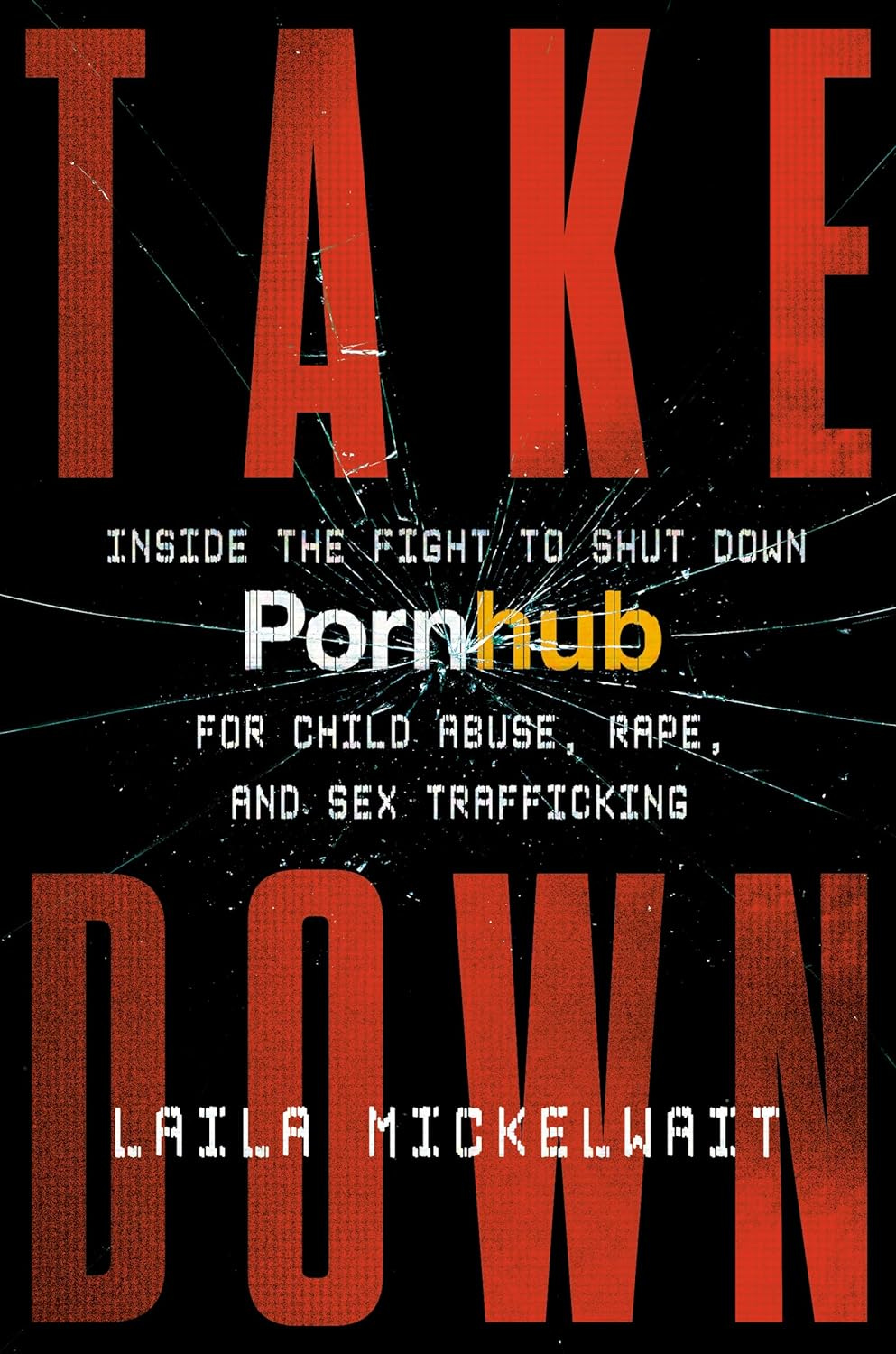
The book wasn’t just eye-opening—it was gut-wrenching. Laila laid bare the gruesome realities of what she calls the 'PornHub crime scene' with unflinching precision.
In the earliest pages, she sets the stage:
“This is the story of how I discovered one of the biggest websites in the world was knowingly profiting from sex trafficking and the lengths the company went to in order to keep profiting after it was exposed.”
DON’T LOOK AWAY
Takedown is not an easy read. A simple trigger warning can't possibly prepare you for what you'll encounter in its pages. Laila's relentless investigation into PornHub unveils horrifying and unspeakable human acts that paint disturbing and unshakable mental images. Most of us can’t even fathom the depths of depravity she exposes.
Laila doesn't shy away from the details, and it’s clear this was a calculated choice. She empathizes with the reader but insists we need to understand and hear the gory specifics. We can’t look away. We must confront the seedy, crime-ridden underbelly of the digital porn industry head-on to truly grasp the weight and severity of the problem we’re facing as a collective.
We must look evil directly in the face.
Several times, I felt my throat tighten with horror as I read. Laila detailed the personal toll of her investigation. She forced herself to watch video after video of unimaginable horrors to document evidence – many of which featured young children and unconscious or homeless women.
Tears streamed down my cheeks as she described cradling her phone, trying to somehow psychically transmit to the victims that she was there. She was a witness. She wanted them to know that their pain would not go unseen or unacknowledged.
My heart shattered repeatedly as I read the stories of desperate victims who reached out to Laila and her Justice Defense Fund team for help in removing their non-consensual videos from PornHub, many of whom watched in horror as the view and download counts skyrocketed, digitally immortalizing their pain and trauma.
I know all too well the pain of grooming, sexual abuse and rape. In my mid-twenties, I narrowly escaped being swept into a now widely exposed sex trafficking operation in LA.
Every victim deserves someone like Laila in their corner, refusing to look away.
PROFIT OVER PAIN
As I delved deeper into Laila’s book, one theme became glaringly clear: the online porn industry’s ruthless prioritization of profit over human decency.
PornHub’s business model is a chilling testament to this prioritization. In 2020, PornHub was the tenth-most-visited website globally, attracting 130 million visits daily and a staggering 47 billion visits annually.
Laila writes in the pages of Takedown that the volume of content uploaded was so vast that it would take 169 years for one person to watch all the videos added to PornHub in just one year. This astronomical traffic translated into 4.6 billion daily advertising impressions, raking in hundreds of millions of dollars each year for its parent company, MindGeek.
But the truly sinister underbelly of this financial giant lies in its data practices.
If you’ve ever clicked on PornHub or similar tube sites (and let’s be honest, the majority of us have), you’ve unknowingly become part of their profit machine. Their privacy policies outline an invasive data harvesting operation, collecting everything from your IP address and payment details to your browsing habits and sexual preferences. They even assign you a profile based on the videos you watch. This data, amassed from billions of visits annually, is then sold to advertisers.
Many might remember the most repeated quote in Netflix’s 2020 documentary-drama hybrid The Social Dilemma: “If a product is free, then YOU are the product.”
That’s exactly what’s happening here. While watching videos on PornHub, you are the product.
Every click, every scroll, every moment spent on these sites feeds into a system that prioritizes profit over privacy, looping us all into a cycle of unwitting exploitation without our explicit consent. This should fill us with righteous rage, yet most of us simply scroll to the end of the terms and conditions without a second thought.
Adding another layer of horror, lawyer Mike Bowe draws a stark parallel between MindGeek and notorious corporations of the past. Near the end of Takedown, Bowe gets his chance to officially present his case against PornHub, laying bare the truth of their operations. Bowe, renowned for his fierce legal battles against financial behemoths like Credit Suisse and JP Morgan, likens MindGeek to the "Monsanto of porn.”
Yes, that Monsanto.
Bowe breaks it down like this:
“MindGeek essentially became the Monsanto of porn, in that it would just simply not put any limits on content... The fact of the matter is they knew about the problem of illegal content on their site and decided not to do anything about it.”
He continues:
“A search engine optimization company like MindGeek knows as much about what’s on that site as NASA knows about what’s going on in the space capsule. That is to say, everything that’s going on.”
Despite their comprehensive knowledge, MindGeek ran a calculated campaign of denial, victim discreditation, and deflection. This industry, Bowe argues, must be held to the same standards as any other, demanding accountability and ethical responsibility.
One of my all-time favorite mic-drop moments from the book is when Laila sharply counters the argument that the MindGeek execs were somehow blissfully ignorant of the harm they were causing:
“They might be a lot of things, but these men aren’t stupid. Feras (the former CEO of Mindgeek) is objectively an intelligent man. He has a degree in engineering and his employees call him a mathematical genius. He knew exactly how many videos and images were being uploaded, and he knew exactly how many moderators he had working for him.
Feras knew how much of the content on his sites was illegal. In fact, he had admitted in the past that he himself was an avid porn user who would go to Pornhub for his “appetizer” then to his paid subscription sites for his “main meal.”Feras knew it all. He just didn’t care as long as money was coming in.
Perhaps that’s another definition of fucking stupid.”
UNWILLING PARTICIPANTS
As I dove deeper into Laila’s book, another unsettling truth emerged: the sheer number of people in PornHub videos who are unwilling participants, many of whom are (or were at the time of upload) under the age of 18.
All these victims – a shocking amount of them being incredibly young children – have had their trauma and abuse immortalized and monetized by the very business practices we’ve just detailed.
But here’s the gut punch: we, too, the consumers, have likely taken part in this perpetuation of trauma and abuse without our knowledge or explicit consent.
It’s not comfortable to admit that you might have witnessed, and perhaps unwittingly contributed to, the monetization of sex trafficking. Yet, it’s a harsh reality we need to face.
Laila defines sex trafficking in her book as:
“…any commercial sex act involving a minor or any commercial sex act induced by force, fraud, or coercion. Every sex act on Pornhub is commercial—the videos exist to make money for the site. This means that every underage person on Pornhub and every nonconsensual sex act is an act of sex trafficking.”
How many times have we scrolled through videos, never pausing to think about the backstory of the people on our screens? It’s highly likely that the majority of us who have consumed PornHub content have encountered at least one video featuring nonconsenting individuals.
This isn't just about digital files; it's about human lives.
As Laila poignantly states:
“This fight for justice isn’t just about a website and pixels. It is about living, breathing, feeling people—those who have been severely harmed by their abusers and by the men running this website that immortalizes their trauma.”
There’s no point in blaming or shaming ourselves. Most of us, including you, my reader, likely had no idea about any of this—and that’s part of the shock. But let this be a wake-up call to the harsh realities we face.
Change starts with us, and in this case, it means altering our consumption habits. If there is no demand, there will be no supply. Boycotting these tube sites until they stop functioning as organized crime operations profiting off human suffering and child exploitation is one way to make a difference. But can we set aside our own desires to do so? That is the question.
Watching porn isn’t inherently wrong, but turning a blind eye while these platforms profit from sex trafficking and use us, their users, as proxies is.
The real question is: will we let this be our collective moment of reckoning?
As Laila puts it:
“There aren’t many issues in which people are universally united, but everyone agrees that no one should be raped for profit on the world’s largest porn site. They are outraged like everyone else by the news that Pornhub is infested with child exploitation.”
“UNDERAGE AF”
By this point, you might be wondering:
"Isn't it the responsibility of these companies to moderate their own f*cking content?”
“Why is it even possible for me to come across child pornography, rape and other forms of non-consensual content while I'm just trying to find my evening jack-off material?"
Fair questions, my friend.
Most large tech companies place a very intense and serious focus on moderation to avoid liability. For example, Facebook has over 15,000 content moderators globally, and Twitter (sorry, I still can’t get used to calling it ‘X’) has a similar number.
These companies know that robust content moderation is crucial to avoid legal repercussions and protect their user base (but let’s be honest, it’s mostly about covering their own asses).
Let’s play a game. How many moderators do you think Mindgeek, the parent company of PornHub and several other porn tube sites, employs?
I’ll wait.
Got a number in mind?
Good. Now, lower it. By a lot.
According to Laila’s investigative reporting, Mindgeek, which oversees sites like PornHub, RedTube, YouPorn, and countless other platforms under its umbrella, had only THIRTY moderators.
You read that right—thirty.
This skeleton crew was responsible for reviewing over 9 million videos uploaded each year, (and that’s not even including the millions of images). This means each moderator was expected to view over 1,200 videos per 8-hour shift, often with the sound off—missing crucial audio cues that could easily tip-off that a video might include rape or other forms of non-consensual content.
Laila uncovered all of this information through anonymous sources within Mindgeek—employees driven by their conscience to expose the company. These whistleblowers reached out to her directly, fed up with the Mindgeek’s dirty secrets.
Many lower-level employees were disgusted with how the business was run, but the C-level executives showed no intention of changing anything at all as long as that sweet, sweet ad revenue kept rolling in, funding their lavish lifestyles.
One anonymous Mindgeek employee revealed the sheer lack of structure and scope of the negligence in their moderation approach:
'If the woman never, uh, really… cried… too much… we wouldn’t consider it rape… At the end of the day we just had to guess if it was rape or not.'
But it gets worse. Laila also uncovered unequivocal proof that Mindgeek seemed a hell of a lot more focused on hiding illegal and non-consensual content and silencing victims than taking meaningful action.
Victims—understandably horrified to come across some of their most traumatic moments immortalized on the site—often reported their illegal or non-consensual videos multiple times with little to no response from PornHub.
And when they did get a response, they were asked to jump through an exhausting series of digital hoops, providing multiple forms of identification, often to no avail. The videos remained online. Meanwhile, the scumbags uploading the videos didn’t have to provide any verification at all, leading to an endless cycle of re-uploads and compounded trauma.
Every single day that no action was taken, and these videos remained online, PornHub’s handy-dandy download button made it possible for these victims’ trauma to live on forever with the simple click of a button. Reuploaded into infinity.
One of the most egregious practices Laila uncovered in her investigation was PornHub's censoring of comments that flagged potential criminal activity.
Concerned viewers who were just trying to watch consensual porn videos—as any adult should have the ability to do—would often report seemingly illegal content, venting their concerns and horror in the comments section at what they stumbled upon in PornHub’s cursed algorithm:
“Post nut clarity hit and now I’m crying for the girl I just got off to.”
“She looks unde***e af.”
Laila writes:
“Now I have seen the words “child,” underage,” and “rape” on Pornhub dozens of times and every single time they are censored in the exact same way.”
Mindgeek had intentionally set up their system to detect certain words and hide them, leaving the illegal content untouched. This nefarious tactic ensured that the crime scenes remained online, continually victimizing those depicted.
Why? Because the money train cannot be stopped. That’s why.
At every turn, Mindgeek executives have gone out of their way to excuse and deflect the issue, often gaslighting victims in the process.
Laila delves deeper into this behavior, stating:
“I know from my advocacy work and Pornhub’s own press statements that one of the most-searched terms on Pornhub is “teen.” A quick search for the word “teen” turns up titles such as “Young Girl Tricked,” Tiny Teen Fucked,” “Tiny Petite Thai Teen,” “Teen Little Girl First Time,” and on and on ad infinitum. Many of their videos feature girls who look thirteen years old at best—girls with braces, pigtails, flat chests, no makeup, and young faces, holding teddy bears and licking lollipops, all while being penetrated. Pornhub claims such videos are “legal” and “consensual” content made to satisfy “various user fantasies.” They are saying these are merely adult actresses made to look like underage teens and everyone seems to believe them.”
Riiiight. Just actresses playing roles. Too bad the mounting evidence—including countless victims who have come forward—says otherwise.
One thing is clear: we cannot rely on Mindgeek to act morally or protect its users and the individuals in the content it monetizes.
Their primary focus is on profit, no matter the human cost.
BRAIN WARP
Much of what I've shared so far might be new to you, my dear reader—criminality, trafficking practices, and the sheer amount of illegal and non-consensual content on tube sites like PornHub. Many of us have visited these sites, whether we'll admit it out loud or not, in our own private moments from an incognito tab in our mobile browsers.
As I said before, the point of this post, nor Laila's book, is not to shame anyone for consuming (or making) consensual porn. But what I have been wondering more and more lately—and even more so after reading Takedown—is what this early and constant exposure to more and more extreme and hardcore content has done to our collective psyche.
Members of the Millennial and Gen Z generations have been enduring a solid drip-feed of extreme pornography for as long as we’ve had access to phones, which for most of us is the majority of our formative years.
Porn platforms use algorithms designed to push increasingly graphic content, desensitizing us as viewers. Over time, it takes more and more extreme material to achieve the same level of stimulation.
Many of you can probably relate to this unsettling progression. How often have you found yourself spiraling down a darker, more intense rabbit hole than you'd ever care to admit, leaving you feeling like you need to take a shower afterward?
You're not alone. This isn’t a coincidence; it’s by design. The algorithms are crafted to create this relentless escalation, trapping us in a cycle of ever-intensifying content.
A few years back, Billie Eilish appeared on the Howard Stern show and she opened up about the impact having access to hard-core pornography had on her as a teen:
“As a woman, I think porn is a disgrace, and I used to watch a lot of porn, to be honest. I started watching porn when I was like 11. I didn’t understand why it was a bad thing. I thought that’s how you learned how to have sex. […] I used to be the person that would talk about porn all the time. I’d be like, ‘Oh, it’s so stupid that anybody would think that porn is bad or f*cked up,’ you know, ‘I think it’s so cool and it’s great and it’s empowering.’ […] I was an advocate and I thought I was ‘one of the guys’ and would talk about it and think I was really cool for not having a problem with it and not seeing why it was bad and… you know. I think it really destroyed my brain and I feel incredibly devastated that I was exposed to so much porn.”
How many of us have had our minds warped by porn, just like Billie? How many of us can admit we've been algorithmically groomed to the point where normal human sexual interactions no longer satisfy us? How many don’t even know how to act in the bedroom without putting on a porn star mask? Who would we be as sexual beings without all this insidious programming?
I think about it a lot more than I’d like to. And it makes me sad. And really, really, angry.
Angry for all of us.
SQUEAKY-CLEAN HANDS
At the time of writing this, I’m currently in the third trimester of pregnancy and preparing for the arrival of my first child, so I’ve been hard at work batch-creating podcast content to cover my maternity leave.
One of the ideas I’ve been cooking up—and have wanted to create for a long time—is a mini-series called "Anatomy of Evil."
The aim of these episodes is to explore how we, as a society, often label individuals as "monsters" without considering the myriad factors that contribute to their actions—socioeconomic conditions, systemic failures, childhood trauma, and more. The goal isn't to excuse their behavior or crimes but to provide a more nuanced and multifaceted understanding of how evil manifests and takes root in our society.
The first episode is set to drop on the Back from the Borderline podcast feed on August 6th, 2024, and it features an in-depth exploration of Charles Manson and the Manson Family.
Manson, a figure synonymous with manipulation and control, orchestrated unimaginably heinous crimes without ever physically committing them himself. He laid the psychological groundwork and pulled the puppet strings, all while keeping his hands technically clean. Eventually, he went to prison for his role in these atrocities and went down in history as one of the most infamous criminals of the 20th century.
As I read Takedown, I was in the middle of recording this episode. I found myself struck by the parallels between Manson's tactics and the operations of MindGeek and its executives.
Like Manson, these corporate heads didn't commit the crimes themselves. Their hands remained clean, but they cultivated and sustained the perfect environment for crime and abuse to flourish. Manipulating from behind the scenes, they consistently prioritized profit over human decency, enabling these atrocities to occur.
While Manson directly influenced his followers through psychological manipulation, MindGeek's executives fostered a culture that ignored ethical concerns in favor of maximizing profit, indirectly facilitating the rape, abuse, and trauma of countless innocent people. Manson eventually faced justice for his actions, but to this day, MindGeek’s executives remain free, facing no prison time. This highlights the disturbing nature of white-collar crime.
But can it still be called 'white-collar' when sex trafficking and child pornography is involved?
“DRIPPING WATER HOLLOWS OUT STONE”
After everything we've uncovered together from Laila Mickelwait's Takedown, one burning question remains:
“What can I—a solitary human being trying to navigate my own shit while existing in this hot mess of a world—possibly do about any of this?”
I get it. The sheer scale of the issue can indeed feel paralyzing, but the power to create change lies in our collective action.
Laila stresses that this battle requires all of us.
Whether you lean left or right, young or old, this cause breaks through typical boundaries. She even points out in the book that some of her strongest allies are adult content creators and porn producers. This is about standing together for justice and human decency.
First, to make a real impact, we need serious legislative and regulatory change.
User-generated porn sites must implement reliable, third-party age and consent verification processes for every individual in every video. No exceptions. Financial giants like Visa and Mastercard have immense power. By mandating these verification processes as a business requirement, they can enforce these policies globally and instantly. Without compliance, these sites can’t make money, and without money, they would cease to operate. Period.
Strategic civil litigation is another vital front.
That means continued lawsuits on behalf of victims, supported by skilled attorneys and well-funded advocacy groups like Laila’s Justice Defense Fund. This dual approach of public pressure and legal action is our best shot at putting an end to this once and for all.
But there’s another aspect of this fight that hits even closer to home.As consumers, we must wake up to the impact this has had on us.
The algorithmic brainwashing and desensitization towards increasingly explicit porn have subtly warped our perceptions and expectations of sex and intimacy. We've been fed a steady stream of extreme content throughout our most formative years, leaving many of us numb and detached from real, human connection.
It's time to wake up to how this content has shaped us.
Can we own up to the algorithmic grooming that’s made it harder to find fulfillment in real, consensual intimacy? This realization is uncomfortable but essential. It’s about more than stopping exploitation; it’s about reclaiming our minds and our sexuality from the insidious grip of these platforms.
Yes, there’s hedonistic pleasure to be found on these tube sites, but at what cost?
Can we adjust our consumption habits—maybe even boycott these sites entirely—to hold these companies’ feet to the fire and force them to stop peddling illegal content? The onus is on us.
Our collective voice and actions have real power. Will we stand up and use it?
Laila makes it clear:
“I won’t stop fighting for a world where rape is no longer a commodity to be bought and sold on the internet for profit and for a world where children are no longer ruthlessly exploited with impunity.”
This fight isn’t just hers; it’s ours.
Together, we can dismantle these behemoths of exploitation and build a future where such crimes become distant memories of a dark and dystopian past.
Drawing from Malcolm Gladwell’s David and Goliath, Laila reminds us in the final pages of Takedown that giants are not as invincible as they seem. Persistence, strategy, and collective effort can bring down even the most formidable foes.
One passage near the end of the book struck me deeply. As I read it, I felt the tears come:
“… As I watch the rain fall onto the wet pavement beneath my feet, one of my favorite sayings comes to mind again: dripping water hollows out stone, not through force but through persistence. There’s still work to be done. Onward.”
WHAT NEXT?
There is, indeed, work to be done. Here’s how you can get involved:
READ THE BOOK: Even though you've already absorbed everything in this post, I've barely scratched the surface of what Laila exposes in her book. It's available for pre-order now and will officially drop on July 23rd, 2024. Becoming involved means being truly informed, and this book is one of the most bingeable and brutal exposés I've ever read. [Click here to pre-order now.]
JOIN THE MOVEMENT: Organizations like the Laila’s Justice Defense Fund (JDF) are at the forefront, offering avenues for involvement. By visiting justicedefensefund.org, you can join Team Takedown, sign the Traffickinghub petition, and contribute to making the internet a safer place for future generations.
VICTIM ADVOCACY: If you are a victim of online sexual exploitation and are seeking legal assistance, you can find help by filling out this form.
FOLLOW LAILA: Keep up with Laila’s fierce advocacy by visiting her website, signing up for newsletter updates via the Justice Defense Fund website, or follow her on Twitter, Instagram or LinkedIn.
MY INTERVIEW WITH LAILA: Be sure to follow the Back from the Borderline podcast so you’re notified when our interview episode drops on July 25th, 2024. Visit backfromtheborderline.com to find and follow the pod on your favorite player.
ADDITIONAL READING
To further explore the corruption within the digital porn industry and its role in perpetuating the exploitation and trauma of non-consenting individuals, check out these additional articles that dive deeper into the issue:
✧ “The Geek-Kings of Smut” [via New York Magazine]
✧ “I was raped at 14, and the video ended up on a porn site” [via the BBC]
✧ “Pornhub Is Being Accused of Illegal Data Collection” [via Wired]
✧ “Florida Man Arrested After 58 Porn Videos, Photos Link Him To Missing Underage Teen Girl” [via Newsweek]
✧ Big Tech and the Online Child Sexual Exploitation Crisis [full hearing via the U.S. Senate Judiciary Committee]
✧ “Survivors, NGOs call for criminal investigation of porn giant MindGeek” [via CBC News]
✧ Lifting the veil of secrecy on MindGeek’s online pornography empire [via The Globe and Mail]
✧ “Bill Ackman blasts Visa, saying it has the power to pressure Pornhub to remove child pornography” [via CNBC]
And now, the links for my paid readers…
As per usual, I've curated some exclusive links and resources specifically for my paid Substack subscribers. This month, I'm giving you the inside scoop on what I've been exploring, finding fascinating, and devouring in my reading sessions.
This time around, the links will include:
✧ A podcast episode exploring recent revelations about non-human intelligences, challenging the mainstream paradigm and delving into encounters that blur the lines between physical and ethereal realms.
✧ A podcast episode on “walking the life of the mystic” to explore your inner world.
✧ Three of my current “for fun” reads and Audible binges (topics spanning from NDE’s, King Arthur, all the way to the secret history of the CIA and Charles Manson)
✧ Deep dives on the esoteric history of the tarot, Carl Jung and synchronicity
And more.
Un-paid readers won’t see anything below this point. If you’d like to unlock these additional resources, consider upgrading your subscription for just $5/month.
If you’re not quite ready to upgrade, why take a moment to subscribe to my podcast? It’s free to listen via all major podcast streaming platforms via backfromtheborderline.com. New episodes drop every Tuesday and Thursday.
And now, onto the additional resources for my paid readers…
Now that it’s just you and me, here’s the additional goodies. Save a few of the freebies that sound interesting and listen to them throughout the month until the next post. Paid resources are marked with a ($).
✧ Consciousness Continuum [Episode of the Point of Convergence Podcast]
✧ Walking Between Worlds [Episode of the Stories for a Living Future podcast]
✧ The Rest is History podcast [my newest comfort binge]
✧ For the Intuitives (Part 1) [Episode of The Emerald podcast] (This whole pod is fantastic)
✧ The Mists of Avalon [book I’m currently devouring – I’m finding lately that I’m needing some “for fun” reading…] ($)
✧ Chaos: Charles Manson, the CIA, and the Secret History of the Sixties [current Audible listen – this one inspired my upcoming “Anatomy of Evil” series!] ($)
✧ Science and the Afterlife Experience: Evidence for the Immortality of Consciousness [another current read] ($)
✧ The Body Remembers: The Psychophysiology of Trauma and Trauma Treatment […and another read] ($)
✧ Carl Jung, Synchronicity & the Esoteric History of Tarot (YouTube episode of Third Eye Drops)
✧ Secrets of Plato’s Cave & the Truth Beyond the Simulation (another epic breakdown with my friend Michael via his YouTube channel Third Eye Drops)
✧ The Psychology of The Paranormal - Carl Jung (via The Externalised on YouTube – one of my favorite channels)
That should keep you busy until the next one, you emotional deep diver, you. Ta-ta for now.
-Molls

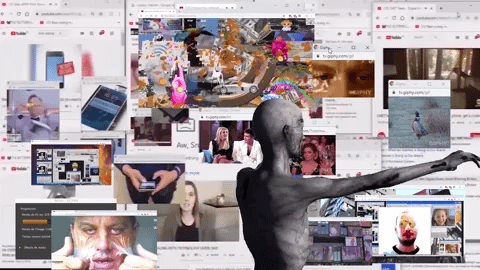





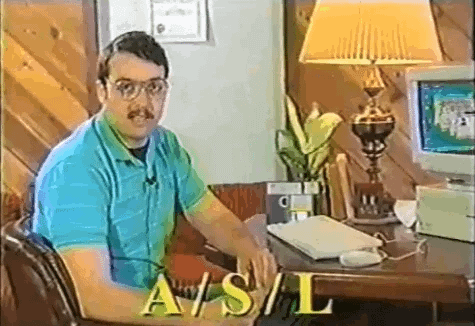


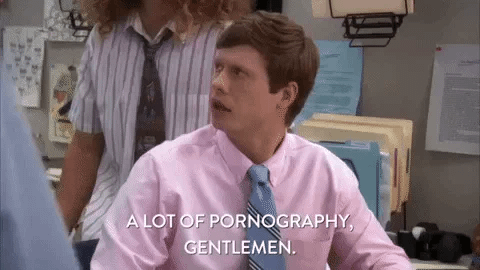
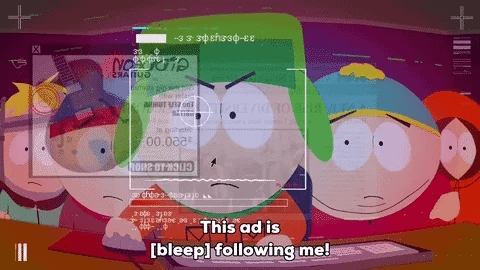

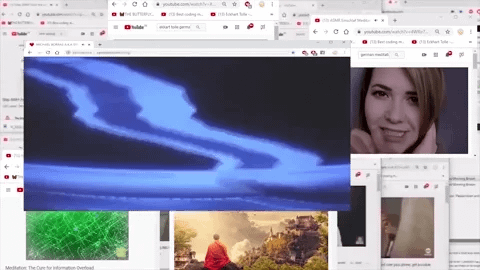


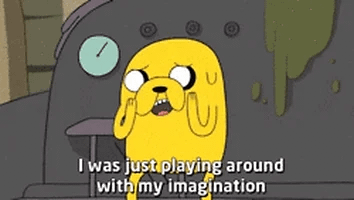
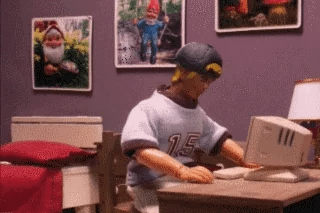

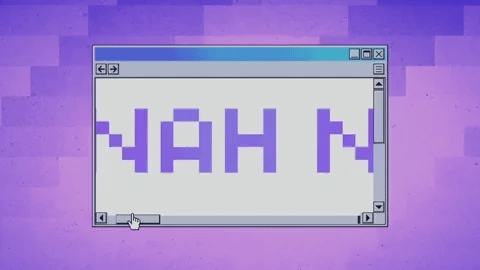


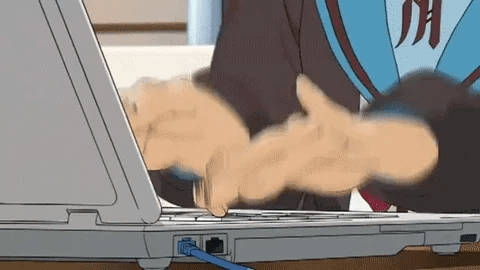
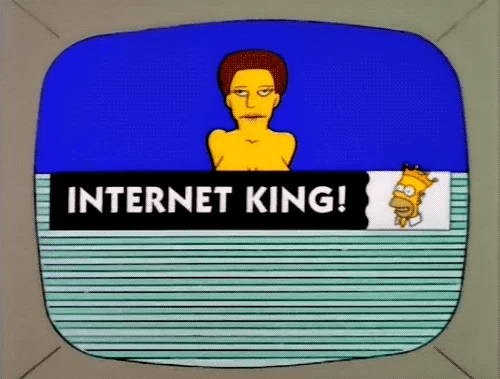

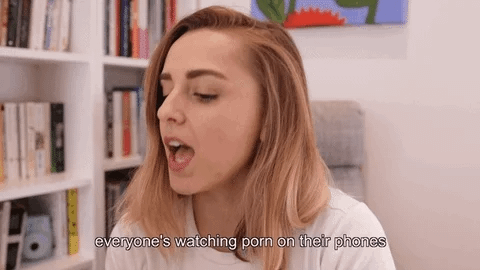
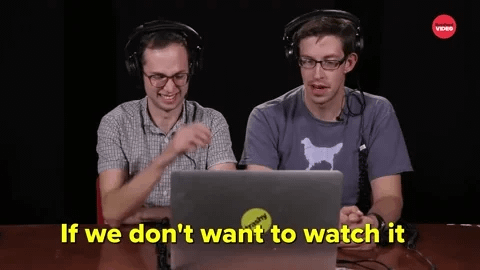
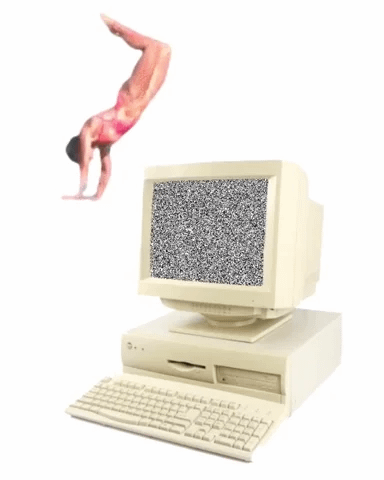
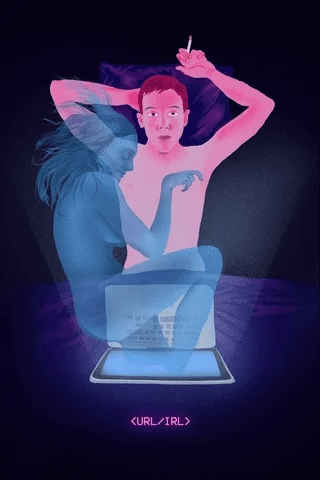

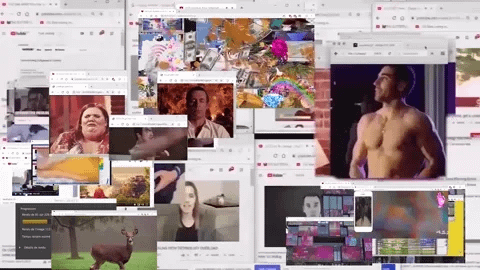
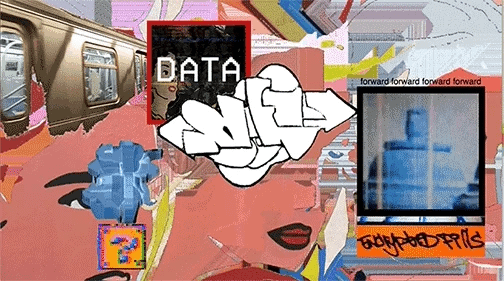
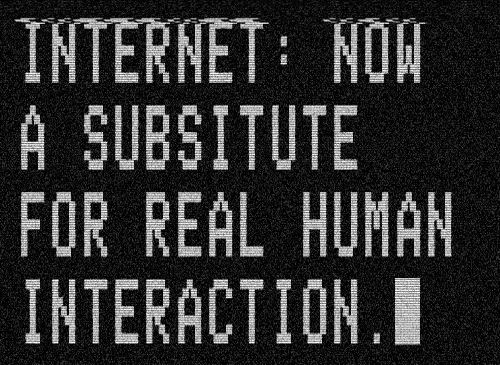

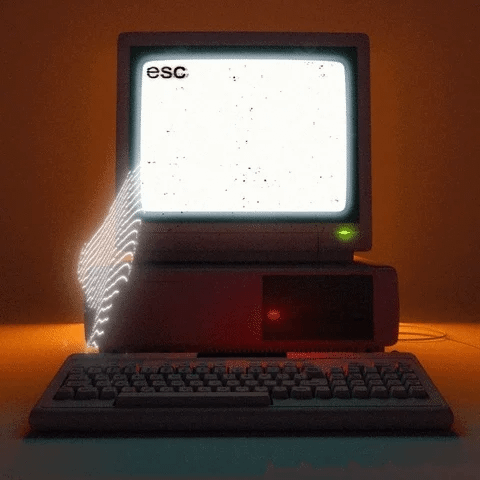



I'm so grateful that you have drawn attention to this horrifying and heartbreaking issue! In this frustrating time in history, one can feel helpless and hopeless in the fight against injustice - and you have outlined an easy way for us to make a difference. I had no idea this was happening - and now that I know, I can't feign indifference. Thank you for your courageous and considerate treatment of this subject and for your advocacy - you have convinced this reader never to watch Pornhub again.
Mother of God. I am so very grateful I did not grow up with the Interwebs eating my brain or changing my sexual expectations. Deeply discomfiting to note that although in "the West," underage marriages, medieval-style, are seen as passé and downright creepy, the urge of adult men to have sex upon underage girls (and/or boys) has slithered into the online pornography world. Is there something inherently fucked in the psyche of men? Is it nature? Nurture (patriarchy strikes again)? Both?